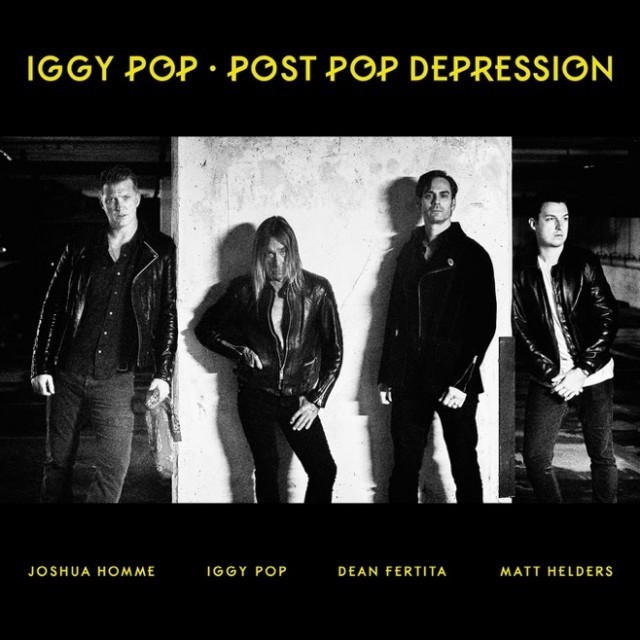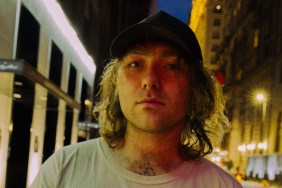Iggy Pop has been running for a long time – and we’re not just talking about his copious amounts of energy on stage. As a part of the proto-punk movement of the late 60s and early 70s, Pop’s role in The Stooges elevated him to an iconic status within the genre, serving as inspiration to an entire generation of vocalists who wanted to hit the same highs – and yes, you can take that as euphemistically as you please.
The fact of the matter is, no matter how many (admittedly always great) Stooges reunions he’s thrown our way, the man born Jim Osterberg has all-too-apparently outgrown that music. Think of moments like The Passenger, one of his greatest accomplishments; or his last big hit, the acoustic-rock duet Candy with The B-52’s Kate Pierson back in 1990.
How about his forays into weirdness – no, not that terrible Stooges album; we’re talking more like his French-pop flavoured Préliminaires and Aprés LPs, or his collaborations with the likes of Ke$ha and Peaches. Yes, Pop is a punk figurehead; but anyone with even more than a passing knowledge of the man knows that’s purely surface value.
When it was announced that Pop’s seventeenth (and potentially final) solo record was to feature collaborations with Queens of the Stone Age leader Josh Homme – also behind the boards – folks were naturally expecting the wilder side of both musicians.
The wild-child returneth with the master of self-described “robot rock” by his side – rock & roll, baby. Again, this kind of expectation ultimately devalues both artists into merely meat-and-potatoes curmudgeons. Truth be told, Post-Pop Depression is perhaps more aligned stylistically with the grid-locked, suited-up Bond-theme cool of latter-day Arctic Monkeys – whose drummer, Matt Helders, tightly keeps the beat here. It’s a stylish record – not necessarily at the downfall of substance, but definitely one that’s not afraid to show off its sheen and polish.
Homme draws less of a primary focus on guitars and more onto other devices like analog-synth waft (Break Into Your Heart), vibraphone (American Valhalla) and piano (Chocolate Drops) on key tracks. Naturally, his guitar swagger comes into play, but never at the expense of other elements and never in a manner that overshadows the man of the hour. His dynamics and restraint in the acoustically-oriented Vulture especially, truly makes one wonder why this match-up had not occurred sooner in either’s career.
Pop, meanwhile, is not concerned in the slightest with crassness or shrieking “c’mon” until he’s hoarse – been there, done that, bought the t-shirt and subsequently tore it off. He croons, he moans… at one point, he even chillingly whispers in a lower register “I have nothing but my name,” repeating it like a broken man would a mantra into the mirror.
It’s safe to say that there is a lot of channelling of the late David Bowie, a close friend and mentor of Pop’s, that is being exorcised through the record. It was Bowie, after all, that ostensibly brought Osterberg back from the dead; turning his life around after falling into a significant hole of drug abuse and helping to launch his solo career. It would be reductive and regressive to consider Post-Pop Depression a complete return to that era, but its influence is both indelible and undeniable.
None of this, of course, is what one sees coming; despite the layered nature of both Homme and Pop. It’s an album that takes time to get used to; one that needs its space to marinate and to settle into its grooves. By the time Homme is leading the rest of the band in a bluesy refrain and Pop is finally letting some of his ranty anger out at the end of lengthy closer Paraguay, they seem to have found what they’ve been searching for.
If this indeed the last time we hear from Iggy Pop in a recorded sense, let the history books show he went out the exact way that he came in – kicking and screaming, sure, but with purpose and intent. Post-Pop Depression is a strange and curious beast, but ultimately one of the best things he’s put his name to in a very long time.
–
Post-Pop Depression is out March 18th, grab a copy here.












